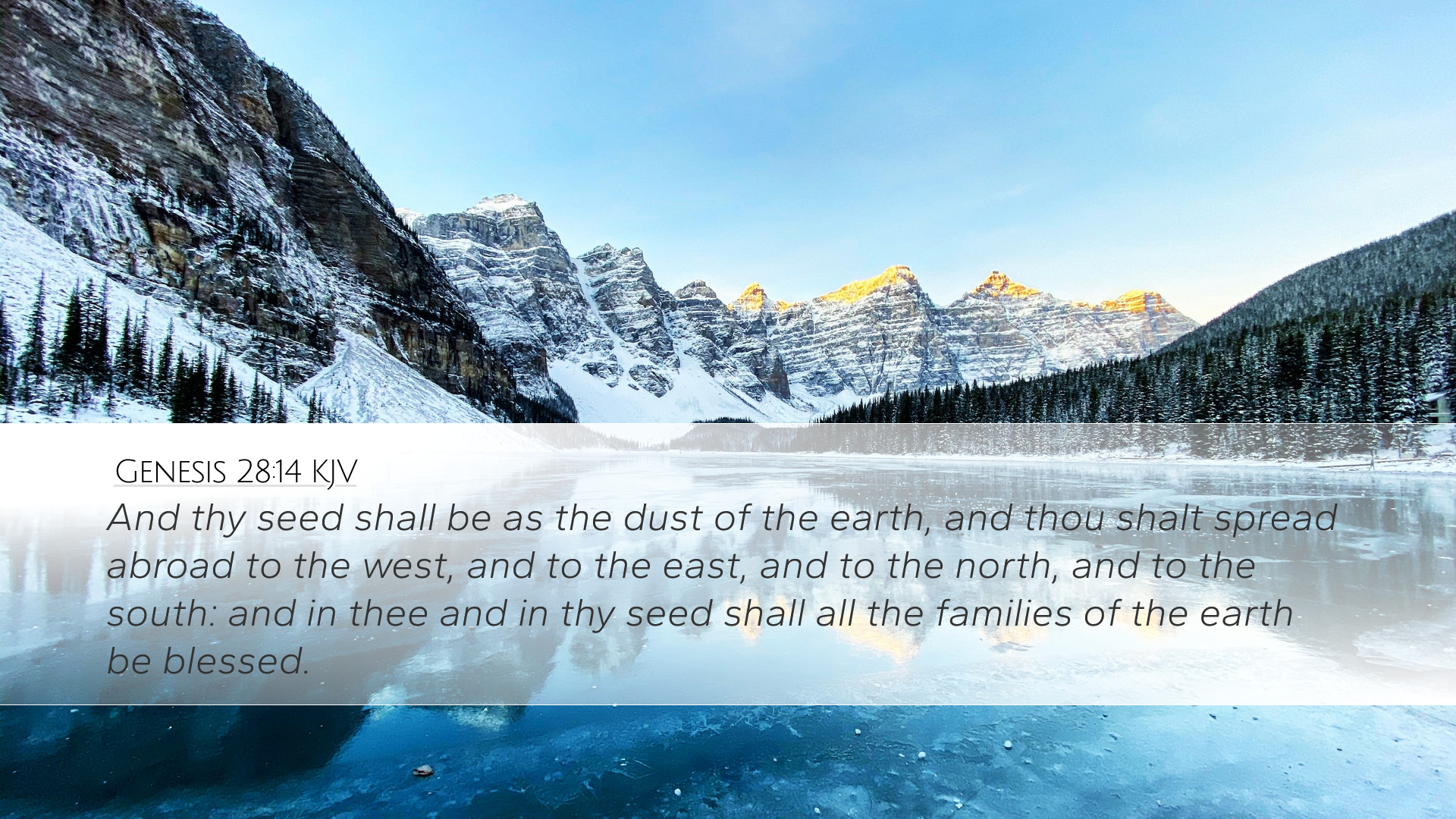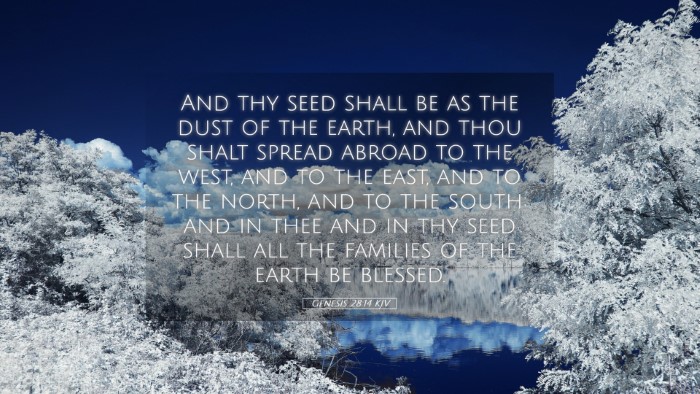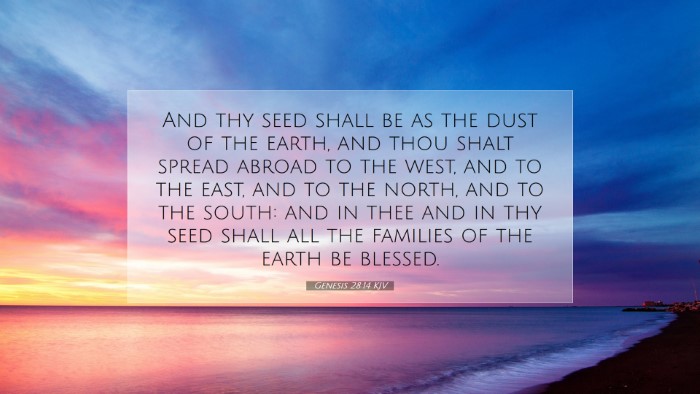Genesis 28:14 - Commentary Summary
Verse Context: Genesis 28:14 records God's promise to Jacob during his flight from Esau. This moment is significant, occurring under the backdrop of Jacob's dreams at Bethel, where he encounters the divine presence.
Text of Genesis 28:14
"And your descendants shall be like the dust of the earth; you shall spread abroad to the west and to the east, to the north and to the south; and in you and in your offspring shall all the families of the earth be blessed."
Exegesis and Analysis
This verse encapsulates God's covenantal promise, revealing layers of meaning that resonate throughout Scripture. The key themes present include the promise of numerous descendants, territorial expansion, and blessings extending to all nations.
1. Promise of Descendants
Jacob is assured that his descendants will experience exponential growth, as numerous as the dust of the earth. Matthew Henry notes that this promise places Jacob within a lineage that is foundational to God's larger redemptive plan.
- Numerical Significance: Dust, being countless, symbolizes not only quantity but also the vastness of God's covenant. Adam Clarke emphasizes that this speaks to an abundance that surpasses expectation.
- Spiritual Legacy: Beyond biological descendants, Albert Barnes shades this promise with spiritual implications, linking it to the New Testament's view of believers as heirs of Abraham's promises.
2. Territorial Expansion
The geographical directions - west, east, north, and south - highlight not only physical spread but also the global impact of Jacob's lineage. Jacob's future generations would indeed occupy a significant portion of the Promised Land as well as influence distant lands.
- Theological Implications: Matthew Henry remarks that this foreshadowed the universal blessing of the Messiah, ultimately encompassing all nations. The implication is a global mission that echoes through Christ's Great Commission.
- God’s Sovereignty: Albert Barnes asserts that this promise illustrates God’s control over nations and geography, indicating that His plans are not confined to a small territory but are expansive and encompass all creation.
3. Universal Blessing
It is striking that in Jacob, all families of the earth shall be blessed. This draws a direct connection to the coming of Christ, where the culmination of this promise is realized.
- Messianic Fulfillment: Adam Clarke points out that the phrase 'all the families' suggests an inclusive nature of the Gospel. This has profound implications for missiology and the understanding of God’s redemptive purpose.
- Covenant Community: Matthew Henry elaborates on the idea that through Jacob and his lineages, such as Judah, we see the anticipation of the coming of the Savior, reinforcing that blessings are not merely material but spiritual.
Theological Reflections
This passage offers rich theological insights for pastors and theologians alike:
- Covenantal Theology: The promises made to Jacob—be it progeny, land, or blessing—underscore the nature of God as a covenant-keeping God throughout the narrative of Scripture.
- Human Response: Pastors can draw lessons from Jacob’s initial fear and subsequent faith, applicable to believers wrestling with God’s promises in their own lives.
- Inclusivity of Gospel: The universality of God's blessings aims for an Missional Church, tasked with sharing the good news of Jesus Christ, opening the way for all nations to partake in God's blessings.
Conclusion
Genesis 28:14 stands as a cornerstone of biblical promise, revealing God’s intentions not just for Israel but for all humanity. The insights drawn from public domain commentaries from Matthew Henry, Albert Barnes, and Adam Clarke highlight the multifaceted nature of God’s covenant with Jacob. It serves as a profound reminder of the God who creates, sustains, and ultimately blesses through Christ Jesus.


